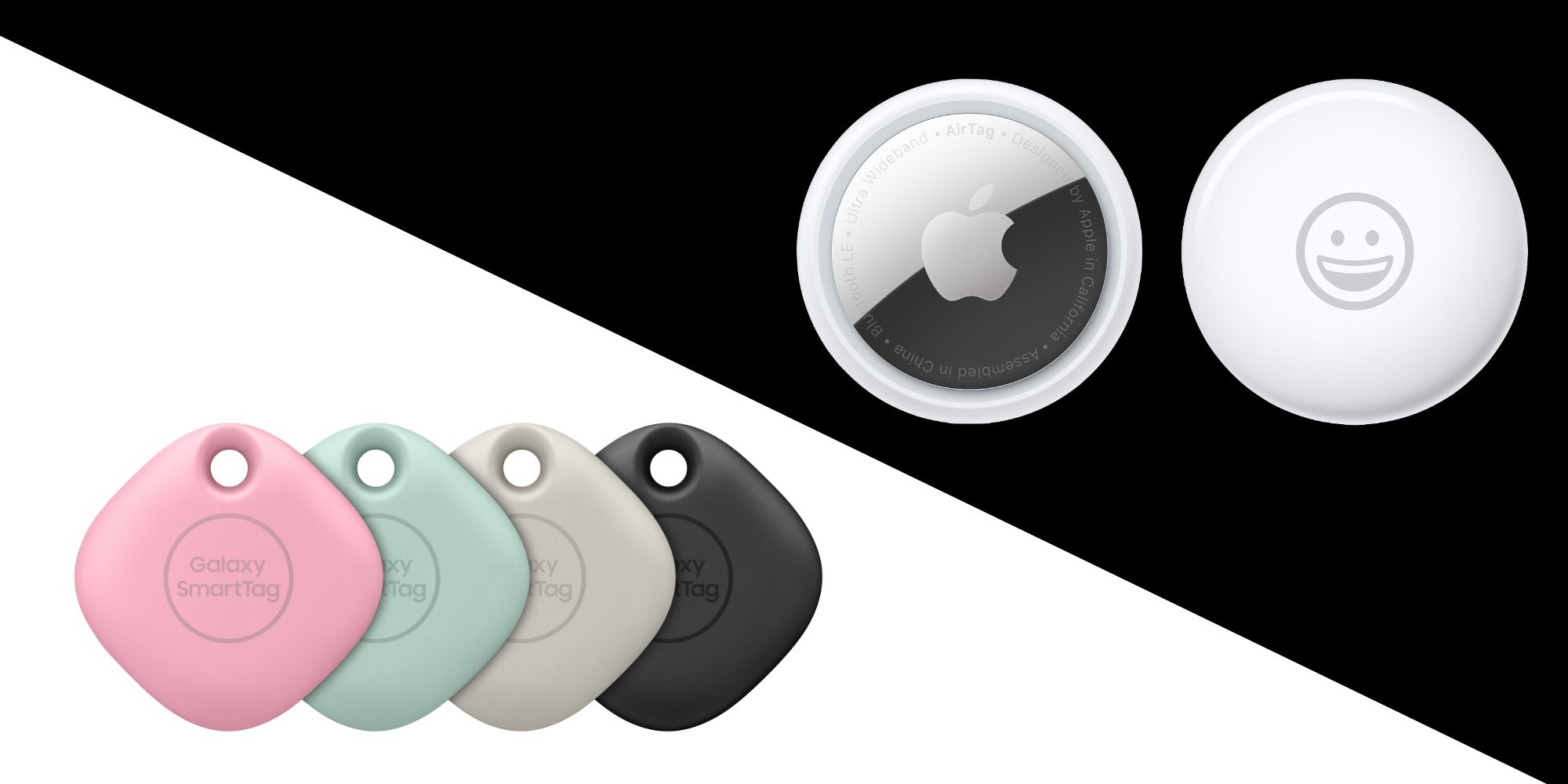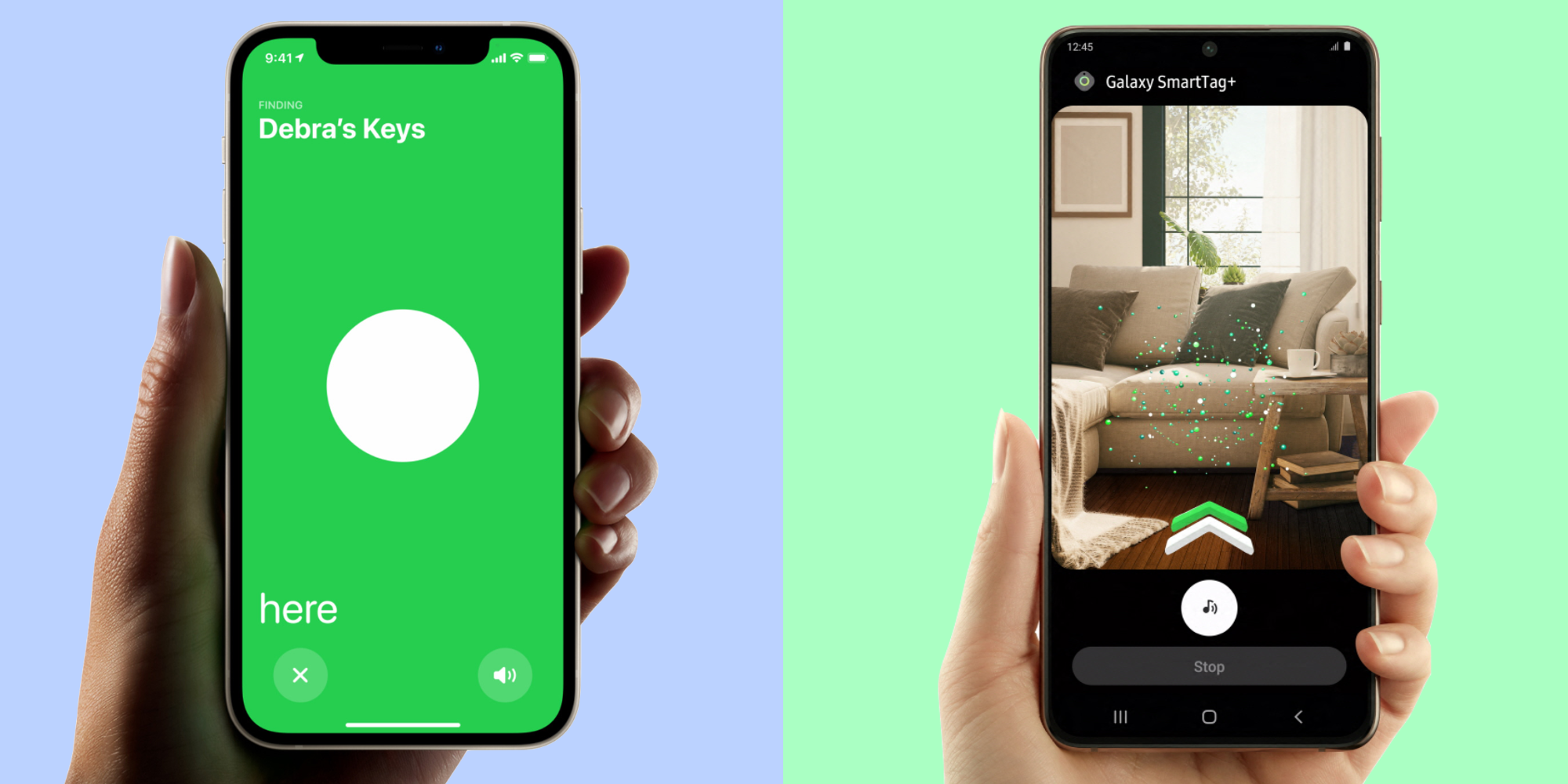2021 is apparently the year of Bluetooth trackers, as Apple and Samsung have both entered the niche with the AirTag and Galaxy SmartTag+, respectively. Bluetooth trackers have been around for years thanks to companies like Tile and Chipolo, but now two of the largest tech companies are ready to make their mark in the space.
The idea of a Bluetooth tracker is pretty simple. It's a small device that attaches to an everyday item (such as a backpack, keys, purse, etc.) and allows for remote tracking from a person's smartphone. Using a companion app for the tracker, users can see its exact location, remotely ring it, and more. While the core functionality of Bluetooth trackers is virtually identical across all the different options that are out there, Apple and Samsung have brought new ideas to the table that help the AirTag and Galaxy SmartTag+ stand out in their own unique ways.
Starting with the AirTag, Apple says one of its biggest advantages is that it leverages Apple's Find My Network for precise tracking even if the Bluetooth range is lost. If an AirTag is left at the gym, for example, other iPhones, iPads, and Macs that are near it can detect its signal and alert you of its location. The entire process is encrypted and keeps everyone anonymous, and since there are hundreds of millions of compatible Apple devices around the world, the tracking network is massive. Samsung has something similar with its SmartThings Find network, but it's nowhere near as robust as what Apple has set up with the Find My Network.
UWB Is The Main Selling Point Of AirTag And Galaxy SmartTag+
Where the AirTag and Galaxy SmartTag+ are equally powerful is with their UWB (Ultra Wideband) technology. This allows for much more precise tracking in addition to the Bluetooth connection, with Apple and Samsung utilizing the tech in two different (yet similar) ways. For the AirTag, UWB is used for Apple's 'Precision Finding' feature — showing the exact distance between the phone and the AirTag, along with on-screen guidance to lead the user to its precise location. On the Galaxy SmartTag+, Samsung shows users an AR view through their camera viewfinder with arrows that guide them directly to it. UWB functionality requires a compatible phone to be used — iPhone 11/11 Pro/12/12 Pro series for AirTag and Galaxy S21+/S21 Ultra/Z Fold 2 for Galaxy SmartTag+.
There are a couple of smaller differences between the trackers, too. Apple lets shoppers customize their AirTag with emojis, whereas the Galaxy SmartTag+ doesn't offer any such personalization. That said, the SmartTag+ makes better use of its small form factor by allowing users to re-map the middle button to call someone or trigger a smart home device (something AirTag doesn't come equipped with).
However, at the end of the day, deciding which tracker to buy really comes down to which ecosystem someone is a part of. The AirTag only works with iPhones, the Galaxy SmartTag+ only works with Samsung smartphones, and that's all there is to it. While that limited availability is annoying compared to a third-party tracker like Tile, it's also what allows features like UWB tracking. Apple starts selling the AirTag on April 30 for $29.99, while the Galaxy SmartTag+ is available now for $39.99.


